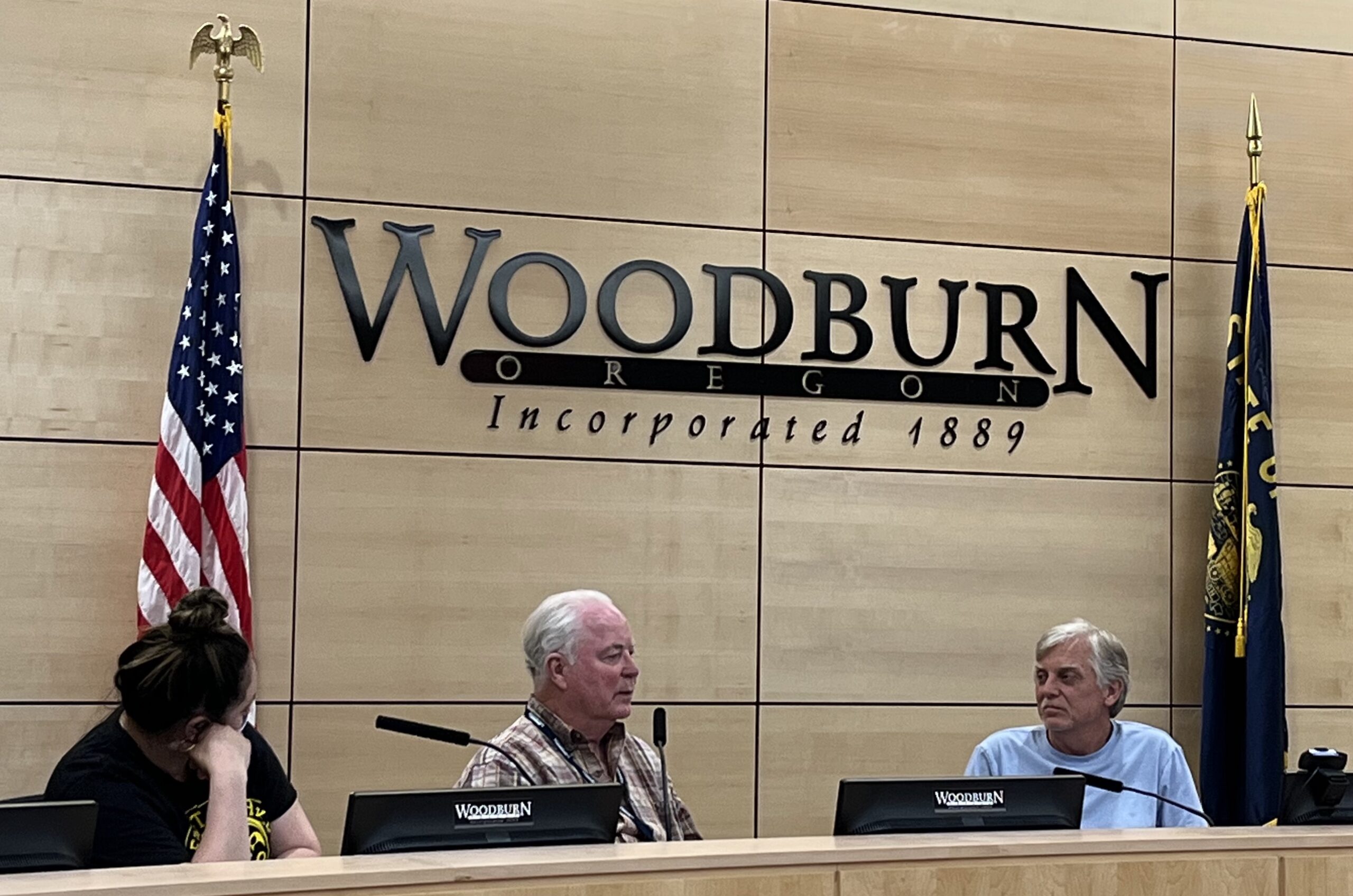
WOODBURN – Elected officials in this small city northeast of Salem are bracing for blowback when details of a police investigation involving a massage parlor and the city’s mayor become public this week.
Details about the incident remain scarce, though that will change when records requested by the Oregon Capital Chronicle, several councilors and another media outlet are released this week. The rumor mill has been churning but so far police have confirmed few details.
What’s known: There was a police investigation of a local massage parlor. The mayor, who won the Democratic primary for a state Senate seat, was somehow involved.
And after his win, Mayor Eric Swenson abruptly ended his candidacy. A few dozen Democrats selected a new nominee, attorney and former Keizer city councilor Rich Walsh, from a middle school gym two weeks ago.
Woodburn City Councilor Sharon Schaub said she doesn’t want to explain the situation as she collects qualifying signatures for her re-election bid from voters in her ward.
“It’s just embarrassing,” she said. “I don’t care who gets a massage with a happy ending. That’s your business, but when it’s public business, that’s when it bothers me.”
Schaub made her comments during a brief public portion of a special city council meeting on Monday night. The council met in executive session, which is closed to the public, to discuss whether any of the records requested are exempt from public disclosure laws.
Swenson told the Capital Chronicle that Schaub’s description of his experience wasn’t accurate, and that it won’t be reflected in the records the city plans to release Wednesday.
“That’s something that didn’t happen, so I’m not sure why she said that,” Swenson said.
Schaub said in an interview Tuesday she wants to see the official report, but that she’s been disappointed in what she heard so far. She’s most concerned about the women working at the parlor and whether they were trafficked.
“I just think it shows a really bad reflection on the city,” she said. “He’s gonna have to be accountable for his actions, and I don’t know specifically what those actions are until I read the report.”
In a written statement he emailed after a brief phone interview, Swenson said he “was in an inappropriate situation, was briefly inappropriate myself, removed myself from that situation and voluntarily reported it to the police when I learned there was an investigation into illegal activity in my city.”
Swenson said he reported his experience at the massage parlor to police before he decided to run for Senate. He filed March 4, just days before the deadline, according to the Secretary of State’s Office.
“I entered the Senate race having already reported this – and knowing it was possible it might become public,” he said. “I did not think that fulfilling my civic duty by reporting an incident to help an investigation into possible illegal activity would play a major factor in a political race, even if the circumstances might seem newsworthy to some.”
He did not name the massage parlor, nor have city officials. There are more than a dozen spas or parlors advertising massages in Woodburn.
Councilors worry about spillover effect
Swenson won the Democratic primary for the 11th Senate District, beating Walsh and Anthony Rosilez, the executive director of the Oregon Teacher Standards and Practices Commission. Then, less than a month after his primary victory, Swenson announced that he wasn’t running and urged state Rep. Teresa Alonso Leon, D-Woodburn, to seek the nomination in his stead.
Alonso Leon had just lost her own primary for the new 6th Congressional District, and her time in public office was set to end in January. Swenson’s exit prompted speculation among Democrats that he had always been running as a placeholder for Alonso Leon, which both denied.
When 40 precinct committee persons – elected local party officials who vote on party business, including nominating replacements for candidates or elected officials who don’t finish their terms – met in a Keizer gym late last month, 29 voted for Walsh and 11 for Alonso Leon.
Swenson said his contributions to the police investigation were not a major factor in his decision not to run for Senate. Instead, he says, his time on the campaign trail convinced him that he wanted to continue as mayor of Woodburn. He plans to run for re-election this fall.
But after an hour-long discussion with Jeffrey Condit, the outside attorney who reviewed the police records because the city attorney and recorder who would normally process records requests had potential conflicts of interest due to their work with Swenson, some councilors said in the open session that the incident could reflect poorly on the entire council.
Councilor Robert Carney called for forming a council subcommittee to look through public records and recommend steps to “redeem” its public image, but other councilors did not take him up on that proposal. Carney said he heard concerns from Woodburn residents that something nefarious was going on with the City Council and that it permitted criminal organizations to operate within the city.
“If we walk out of here tonight, after listening to everything that attorney Condit has told us, and then this information gets exposed to the public in just a couple days, what’s going to happen is that these commentaries I’ve been getting are going to return to all of us,” Carney said.





































































































